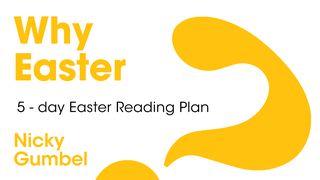Heart-TonguesSýnishorn

Celebrating Others' Success
The doorbell rang through Elena's apartment like an alarm. She put down her book, already knowing who was at the door.
"I got the job!" Chiara practically bounced in the hallway, champagne bottle in hand. "That art gallery position I told you about! I actually got it!"
Elena forced a smile. "That's amazing," she said, stepping aside to let her friend in. "I'm so happy for you."
But as she spoke those words, something cold twisted in her stomach. A knot of resentment she didn't want to acknowledge. The same feeling she'd been battling for months every time Chiara shared good news.
It hadn't always been this way. Once, Chiara's happiness had been Elena's happiness too. But three job rejections, a forced move, and a relationship that ended badly had slowly turned her friend's joy into something painful to witness.
"I thought we could celebrate!" Chiara continued, oblivious to Elena's inner struggle. "I know it's Tuesday night, but this is huge, right?"
Elena nodded mechanically while getting glasses. She searched for the right words, the appropriate enthusiasm, the happiness she knew she should feel. But all she felt was a bitter resentment—and shame for feeling it.
The Hardest Commandment
Here's an uncomfortable truth: It's much easier to "weep with those who weep" than to "rejoice with those who rejoice" (Romans 12:15, NIV).
When a friend is suffering, something in us activates immediately. We find the right words, the right tone, the right presence. We know how to enter their pain and carry it with them.
But when a friend celebrates? When joy radiates from their face? When success crowns their efforts? Something in us can subtly withdraw.
Why? Because others' joy can highlight our own emptiness like a harsh spotlight. It can illuminate our failures, our setbacks, our dreams that haven't come true yet.
Paul says "weep with those who weep" and it feels natural. But when he adds "rejoice with those who rejoice," he's touching one of the hardest parts of Christian love: genuinely celebrating others when their success reminds us of our own lack.
Jonathan's Radical Love
The Bible gives us an incredible example of this in Jonathan and David's friendship.
Think about Jonathan's situation: He was King Saul's son, the legitimate heir to Israel's throne. David was the young man secretly anointed as the future king—a direct threat to everything Jonathan should inherit.
Yet Scripture tells us: "Jonathan became one in spirit with David, and he loved him as himself" (1 Samuel 18:1, NIV).
This is extraordinary. Jonathan loved the man who would take his place. He celebrated the one who would receive the kingdom that should have been his by birthright.
When David achieved military victories that made him more popular than the royal family, Jonathan didn't become bitter. He didn't withdraw. He didn't let David's success poison his heart.
Instead, he did something radical: "Jonathan took off the robe he was wearing and gave it to David, along with his tunic, and even his sword, his bow and his belt" (1 Samuel 18:4, NIV).
Translation: "Your success doesn't diminish who I am. Your rise doesn't threaten my identity. I celebrate what God is doing through you."
The Sin Nobody Confesses
Envy is the only sin no one ever admits to. We'll confess pride, anger, even lust before we'll whisper that uncomfortable truth: "I'm jealous of the good that happened to you instead of me."
But here's the thing: Admitting this struggle is the first step to freedom from it.
Scripture is surprisingly honest about human emotions. We don't find perfect people with spiritually flawless responses. We find complex human beings who wrestle with the same contradictions we experience.
- David dances with joy and writes psalms of praise—but also cries out in anger against his enemies
- Paul rejoices in God's grace—but also confesses his inner struggle: "I do not do the good I want to do, but the evil I do not want to do—this I keep on doing" (Romans 7:19, NIV)
This emotional honesty isn't weakness—it's the starting point for transformation.
John the Baptist's Secret
John the Baptist gives us another powerful example of celebrating someone else's success. John had his own ministry, his own followers, his own identity. Then Jesus came, and John's disciples started following the new teacher.
It would have been natural for John to feel threatened, jealous, insecure. Instead, he said something beautiful:
"The bride belongs to the bridegroom. The friend who attends the bridegroom waits and listens for him, and is full of joy when he hears the bridegroom's voice. That joy is mine, and it is now complete. He must become greater; I must become less" (John 3:29-30, NIV).
John found his joy in Jesus' success. He understood that his identity and worth weren't threatened by another's rise—they were completed by it.
This is the secret of vicarious joy: When we authentically celebrate others' success, we don't diminish—we grow. We don't lose—we gain. We don't empty ourselves—we're filled.
Breaking Free from Scarcity Thinking
Here's what changes everything: In God's kingdom, joy isn't a limited resource. We don't live in an economy where one person's happiness reduces another's chances for happiness.
In God's kingdom:
- Joy multiplies when shared
- Success expands when celebrated together
- Blessings grow when welcomed as community gifts
When Jesus turned water into wine at Cana, He wasn't showing off. He was preserving and deepening a community celebration. The first miracle in the Gospels wasn't dramatic healing—it was an act of extending shared joy.
There's deep theology here: God Himself wants us to learn the language of celebration. To become fluent in shared joy. Not because it's easy—it can be incredibly difficult—but because it's essential for the community He's building.
Practical Steps to Genuine Celebration
When someone shares good news and you feel that familiar sting of envy:
1. Acknowledge the Feeling
- Don't spiritualize it away immediately
- Be honest: "God, I'm struggling with jealousy right now"
- Remember: feeling it doesn't make you a bad person
2. Shift Your Focus
- Ask: "How is God working through this person's life?"
- Pray: "Show me how to celebrate Your goodness in their story"
- Remember: their blessing doesn't block yours
3. Choose to Participate
- Ask questions about their good news
- Offer to help them celebrate
- Share their joy with others
4. Trust God's Timing
- Remember: God's plan for your life is different, not less
- Believe: His timing is perfect, even when it doesn't feel like it
- Know: He has good things planned for you too
Elena's Breakthrough
Three hours later, Elena and Chiara sat on the kitchen floor, empty champagne glasses between them. For the first time in months, Elena had stopped performing happiness and started feeling it.
"You know what's weird?" Elena said. "I've been so focused on what I don't have that I almost missed celebrating what you do have."
Chiara squeezed her hand. "And you know what? Having you really celebrate with me made this ten times better. I didn't realize how much I needed that."
That's the miracle of genuine celebration: It doesn't just bless the person being celebrated—it transforms the one doing the celebrating.
Your Celebration Challenge
This week, practice the ministry of celebration:
When Someone Shares Good News:
- Give them your full attention
- Ask follow-up questions that show you care
- Celebrate out loud: "That's amazing! God is so good!"
When You Feel Envious:
- Pray immediately: "God, help me see this through Your eyes"
- Choose one specific way to celebrate their success
- Thank God for what He's doing in their life
In Your Own Disappointments:
- Remember: God's timeline isn't always our timeline
- Trust: He has good plans for your future too
- Know: Someone else's blessing doesn't cancel yours
The Promise
"And we know that in all things God works for the good of those who love him, who have been called according to his purpose" (Romans 8:28, NIV).
This includes your friend's success AND your current struggle. God is weaving both into His good plan.
When you learn to genuinely rejoice with those who rejoice, you're not just being a good friend—you're participating in God's heart. You're learning to see and celebrate His goodness wherever it appears.
And that changes everything.
Ritningin
About this Plan

In the spaces between words lies a language more ancient than speech—the soul's vernacular. When hearts truly meet, they speak in this forgotten tongue, where a glance carries libraries of meaning and silence becomes eloquence. This sacred dialect can't be learned but only remembered, awakened through love's alchemy and the courage of genuine presence. It's in the eyes that truly see us, the touch that holds our story, the listening that makes a temple of ordinary moments.
More








